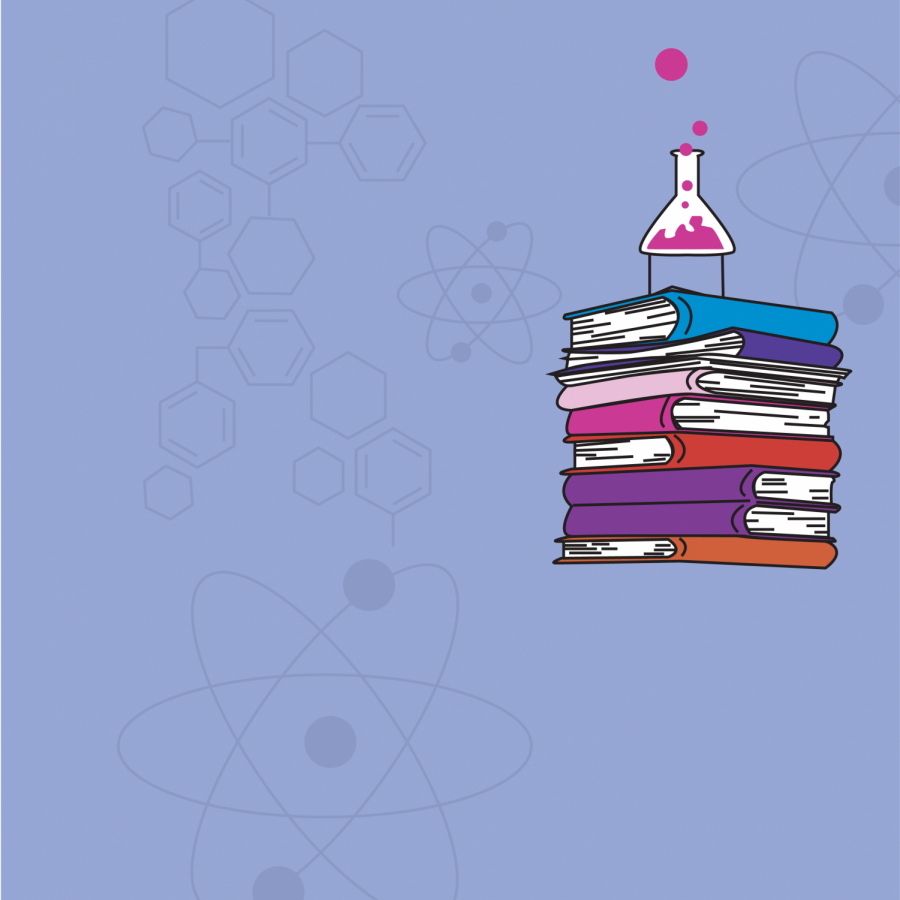Study revamps organic chemistry class for real-world application
Nov 30, 2017
Organic chemistry is one of the most notoriously difficult classes on campus according to many students. On top of being strenuous, the class is considered to have little relevance to real-world application. Dr. Jeffrey Moore, a professor of Chemistry at Illinois has previously taught the course and is striving to make it more engaging through his current research.
Currently, a group of faculty members in the Department of Chemistry are studying continuing results of an evolving CHEM 232: organic chemistry curriculum centered around personalized course content.
Dr. José Andino Martinez, a chemistry lecturer at the University, accompanies Moore in carrying out the renovation of the organic chemistry program. Moore’s study started back in the spring of 2016 and is currently in its second trial out of five.
On the atomic and molecular level, organic chemistry is the study responsible for the way all of life on Earth functions. The subject focuses on an understanding of the principles of carbon-based structures and the mechanisms associated with them.
The chemistry course track follows this typical progression: year one focuses on general chemistry with laboratory sessions, year two focuses on introducing organic chemistry, followed by a reinforced semester of a choice between another organic chemistry class and/or biochemistry.
Get The Daily Illini in your inbox!
Organic chemistry is an important requirement for many students in the biological and chemical sciences. At Illinois, the organic chemistry course needs to change and Moore’s study is a worthwhile solution.
However, organic chemistry isn’t just for those that want to become chemists one day.
“My goal for learning organic chemistry is to give me a good foundation for later courses to help prepare me for professional school exams. I am aiming to go to dental school to pursue becoming an orthodontist,” Elizabeth McDaniel, a sophomore in LAS currently enrolled in organic chemistry, said.
The adapted curriculum is focused on this specific class, where students are encouraged to use critical thinking to place course material in context. Computer programs help to depict information such as the properties of molecules and search the genomes of a system to gain information about a particular protein, drug or pathway of metabolism. These programs allow students to illustrate structures and interact with course information through unique programs.
“We referred to it as ‘reasoning by analogy.’ We would learn about a topic in one context and then be asked to use what we had learned along with the provided resources to solve a problem in a slightly different context,” Kyle Adkins, junior in LAS, explained. Adkins participated in the study as a sophomore last year.
CHEM 232 stands out. The personalized approach created by Moore focuses on pharmacogenetics, the study of inherited genetic differences in drug metabolic pathways.
The idea of pharmacogenetics focuses on personalizing medicine and allows for concepts to become applicable to everyday life.
“The easiest thing about the class was staying involved and interested. Dr. Moore was able to make the material extremely relevant to our majors and lives by placing our lecture material in the context of nutrition, medicine, metabolism and many other subjects,” Adkins said.
In the first trial, after participating in 23andMe, a saliva-collecting DNA testing service, the course allowed for students to study their own inherited genetic differences in terms of how drugs effect their body along with other systems.
Former and current students associated with the study have found that these changes are valuable. With a tight-knit community of students interested in chemistry, the advancement of learning has formed through interactions from the course Facebook page to in-class discussions. It is clear that these students felt like they were all in this together, and were responsible to help each other out.
“One of the most beneficial parts of this section was our leaders’ ability to genuinely make us curious about the material. Furthermore, we often learned about a couple topics in great depth rather than exploring many topics in little depth,” Adkins said.
Moore continues to appreciate the positive feedback from student participants. “I have enjoyed hearing from students who have gone through the curriculum, and how they appreciate having learned foundational knowledge that enlightens their subsequent study of biochemistry,” Moore said.
The next iteration of the study within the organic chemistry course at Illinois begins next semester. After the five-year period, Moore and Andino will analyze and showcase their findings to hopefully pass them along to other universities.






